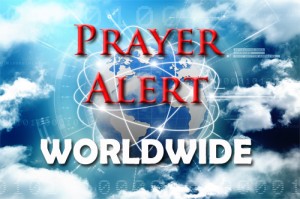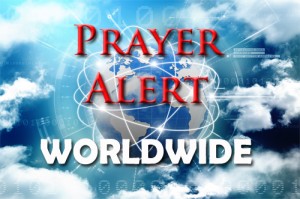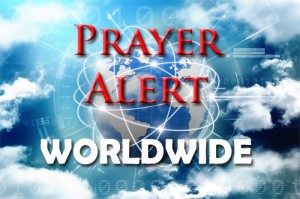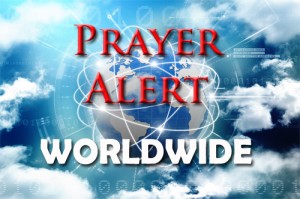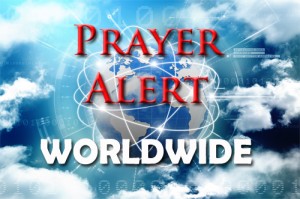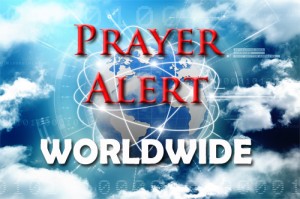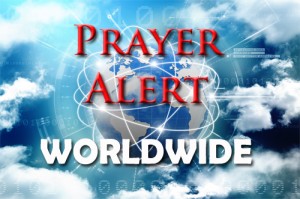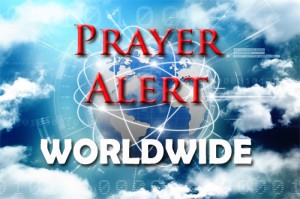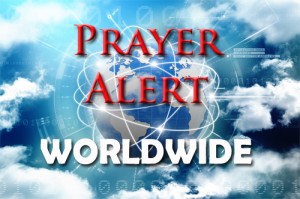Displaying items by tag: Asia
Gulf States: economic boom expands Christian witness
‘I am sure that in the Arabian peninsula there are easily ten million Christians’, says Bill Schwartz, OBE, Anglican Archdeacon in the Gulf and Chaplain of Qatar. Most notable is how the region’s religious mix has shifted in a totally unprecedented way, as foreign workers have flooded in to benefit from the explosion of jobs. Today, at least 50% of migrants and expatriates ‘have some kind of Christian tradition’. In Qatar, where foreign workers outnumber locals by ten to one, there are now more Catholics than Muslims. New church buildings are being built, including one in Abu Dhabi to accommodate 5,000 people at a time. There is opportunity for Christian witness in societies that have been culturally isolated for thousands of years. Schwartz says, ‘I have more opportunities to talk about faith in the Gulf than I ever do in the US, because religion is so important here.’
NATO focusses on Afghanistan
NATO leaders moved beyond the demands of Donald Trump for higher defence spending, and focussed on ending the long war in Afghanistan, in the second day of a summit in Brussels underscored by transatlantic tensions. They welcomed non-NATO partners, including Afghan president Ashraf Ghani and Ukraine's Petro Poroshenko, to focus on policy rather than politics. On the first day, Theresa May had announced an additional 440 personnel for the Resolute Support mission in Afghanistan, saying, ‘I think that shows when NATO calls, the UK is one of the first to step up.’ NATO chief Jens Stoltenberg wants leaders to agree to fund Afghan security forces until 2024, despite public fatigue in Western countries about their involvement in the conflict. US officials told Reuters, ‘Washington is preparing another review of strategy’, a year after Trump begrudgingly agreed to extend involvement in the 17-year-old war.
Japan: record rainfall causes disaster
Mudslides and flooding caused by torrential rain have killed 195, with the toll expected to rise further. 75,000 responders have been deployed for search and rescue operations. Further storms and landslides are expected, causing additional danger. Prime minister Shinzo Abe cancelled scheduled trips abroad to focus on disaster relief efforts. The UN was ready to provide support if Tokyo requested it. Parts of Japan had received 20 inches of rain, with Hiroshima, Okayama, and Hyogo inundated with even more. In two hours some cities were completely flooded as deluges fell across mountains and then funnelled down, forcing hundreds of thousands of people to flee their homes. Those unable to leave took shelter on rooftops as water and mudslides buried houses and vehicles. Pray for a Christian presence among the fearful and grieving.
Thailand: Cave rescue
Efforts continue to extract a Thai youth football team (aged 11-16) and their 25-year-old coach from a flooded cave in Thailand. Water is being pumped out and officials hope the lowered water levels will mean the boys could keep their heads above water and not rely on scuba apparatus to escape the cave in which they have been trapped for 12 days. Rescuers are battling against the clock to beat monsoon rains expected on 7 July. At the time of writing (5 July) the water levels have reduced by around 40% but parts of the passageway leading to where the boys and coach were found are still flooded all the way to the ceiling - leaving diving out of the cave the only option for survival if the water levels are not reduced quickly. They want to reduce the water enough for them to scramble out, walk and perhaps do a little diving.
India: National Health Care scheme
Prime Minister Narendra Modi’s plan to provide healthcare and insurance to half a billion Indians, a people-mass larger than the entire population of South America, is facing serious hurdles. Almost five months after announcing the programme they are still working to lock in hospitals and insurance companies in time for the planned 15 August launch (India’s Independence Day). The healthcare scheme aims to cover the poorest 40% in a country where a 2017 World Health Organisation report found personal spending on health pushed over 52 million people below the poverty line. Although beneficiaries are identified and IT infrastructure is in place, the involvement of hospitals still needs to be finalised. It is the government's second major welfare push this year. It recently presented a draft bill on a social security programme designed to cover the country’s 500 million poorest workers, including those in informal employment.
Saudi Arabia:Things women still can’t do
Saudi Arabia is issuing driving licences to women after abolishing its ban on female drivers. 2,000 women want to complete a driving course now offered at all-female university campuses. However women are still restricted in everyday life. They can’t make major decisions without male permission. They must have a male official guardian, father, brother etc., and need their guardian’s consent to travel, obtain a passport or sign contracts. Their dress code is governed by a strict interpretation of Islamic law. The religious police harass them for exposing too much flesh or wearing too much make-up. Women must limit time spent with men to whom they are not related and most public places have segregation. They cannot use public swimming pools available to men neither can they compete freely in sports. Saudi Arabia proposed hosting an Olympic Games without women. They cannot try on clothes when shopping or read an uncensored fashion magazine.
Iran: Street protests
On 24 June protesters forced two major shopping centres in Tehran to close after the Iranian rial dropped drastically, despite government attempts to control currency rates. On 25 June more protesters swarmed Tehran’s Grand Bazaar, forcing shopkeepers to close. The shutdown came in protest at the economic performance of the government. Protesters believe the administration does not want to hear the voice of the people. They have repeatedly warned the administration to shore up its economic team, but now protesters are saying, ‘we realise that this team must change. The administration must speak to the people honestly and answer questions about its economic performance.’ Rouhani's government has economy and unemployment challenges. Similar protests in early January saw 5,000 arrested and 25+ people killed when armed guards opened fire on protesters. There is widespread unease since America withdrew from Tehran's nuclear deal and intends restoring sanctions. Online videos show security forces firing tear gas at protesters outside a police station. http://www.abc.net.au/news/2018-06-26/thousands-protest-in-iran-over-failing-economy/9909184
Lebanon: Current situation for Christians
Lebanon is the only Arab state not officially Muslim and has the highest proportion of Christians of any Middle East country. Although politically segmented, the constitution attempts to distribute power equally. The president is a Maronite Christian, the prime minister a Sunni Muslim and the speaker of parliament a Shia Muslim. Syrian refugees now comprise a quarter of Lebanon’s population. Some of Lebanon’s Christians can trace their origins as far back as the 5th century. For centuries, Christians have had a strong presence in the country, but a huge influx of Sunni Muslim refugees fleeing Syria is threatening the delicate political balance, bringing violence and complex political dynamics. Shia militant Islamist group Hezbollah, provides protection for Christian communities against Sunni jihadi groups. Lebanese Christians are a minority group divided between opponents and supporters of Hezbollah and are more vulnerable than at any time in recent history; living in conflict, enduring poverty and facing aggressive Muslim attitudes moulded by years of sectarian divide.
Philippines: #LetThemLeave campaign for jailed missionaries
Tawanda is a Global Mission Fellow for ‘Peace Mindanao’ in the Philippines, working for human rights, peace education and conflict resolution. He is from Zimbabwe with a Bachelor of Social Science degree and a master’s degree in public policy and governance. He says, ‘God has always been involved in my life and it is through his grace that I was lifted from the dust to become someone.’ In May he was detained for overstaying his visa after initiating the process for an extension. Miracle is also a Global Mission Fellow with a Bachelor of Social Sciences degree from the Catholic University of Malawi. She serves the indigenous people. The Bureau of Immigration withheld Miracle’s passport, restricting her ability to return to Malawi. The United Methodist Church is calling for both their passports to be returned and for swift departures home.
North Korea: betrayal
North Koreans were betrayed by the failure of US president Donald Trump to include human rights provisions in his agreement with Kim Jong-un at their meeting in Singapore, according to Human Rights Watch. Trump told the BBC World Service, ‘The North Korean people have suffered for so long - and it looks like they’ll have to suffer for a little longer.’ Responding to a question about whether North Korea’s oppression of its people was worse than any other regime on earth, he said, ‘It’s a rough situation over there; there’s no question about it, and we did discuss it today pretty strongly.’ Elsewhere, when asked if he discussed human rights, he said they did, ‘relatively briefly.’ See
